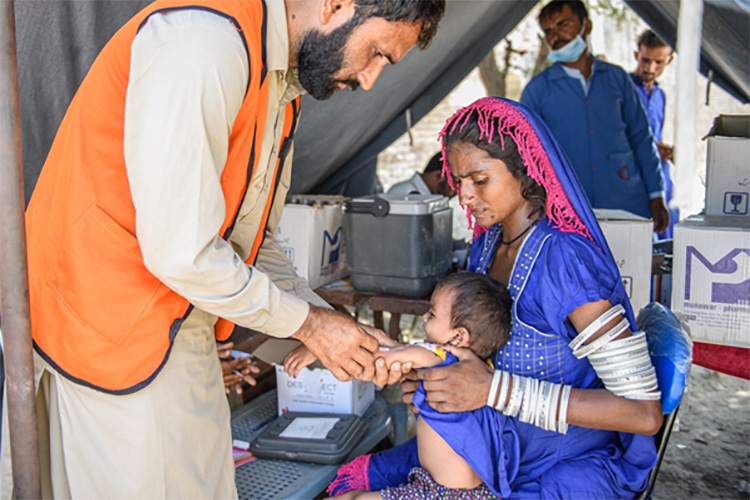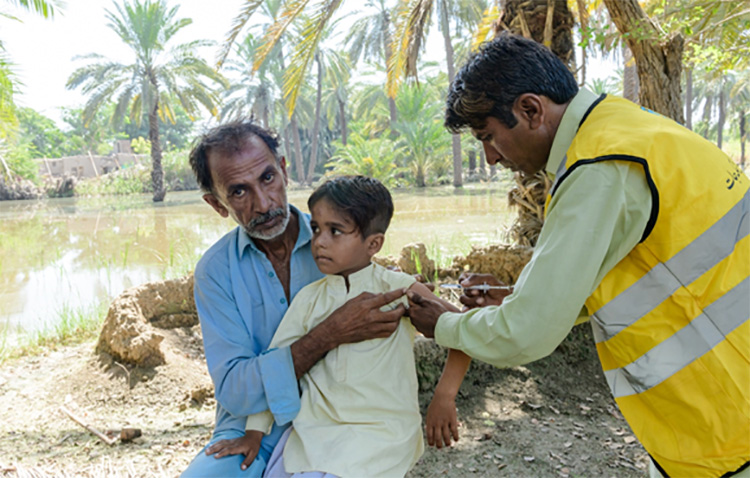
An estimated 1.8 million children were vaccinated in Pakistan's flood-affected areas as measles outbreaks continue to threaten communities after the flooding
23 November 2022 – This summer, the devastating floods throughout Pakistan forced a large population to move into temporary settlements or camps. The unexpectedly high levels of flooding have had a significant adverse effect on health, particularly for children. Moreover, overcrowded and rudimentary shelters, broken health infrastructure and inadequate safe water and sanitation have compounded the risk of measles and rubella.
Poor access to vaccination services and population displacement have contributed to measles outbreaks in 31 districts in the country since the floods started. Data from the National Disaster Management Authority show that 12 out of 13 (92%) districts with recent outbreaks are flood-affected.
To mitigate the risk of measles outbreaks in flood-affected populations, the Expanded Programme on Immunization has carried out a measles-rubella vaccination campaign, focusing on displaced populations living in temporary shelters, often beside main roads, motorways and the banks of the canals. This was an immediate flood response intervention to prevent outbreaks in the most vulnerable displaced populations.

The campaign targeted 1.8 million children aged between 6 months and 59 months in 38 districts. With 98% coverage, the campaign will help control disease transmission and prevent outbreaks in flood-hit areas.
"We applaud the federal and provincial governments for conducting a measles-rubella campaign at a vital moment, preventing more loss of life following the tragic floods. This campaign was critical to maintaining the gains of the previous measles-rubella campaign," says Dr Palitha Mahipala, WHO Representative in Pakistan.
“The success of the measles-rubella campaign in flood-prone areas was made possible by the dedication of health workers. Every day, they ensured that every child in the target locations was reached. We owe a great deal to their hard efforts”, he adds.
The campaign is an integral part of the wider WHO response designed to support the government's flood recovery and rehabilitation efforts.
WHO is now focusing on enhanced surveillance to support the delivery of targeted and faster health services. It is evident from the data that there is a possibility of major measles outbreaks early next year unless effective mitigating measures are taken now and communities are supported fully to build back safer.
Measles is one of the major causes of children's deaths in emergencies and further contributes to mortality by exacerbating malnutrition and vitamin A deficiency. According to WHO guidelines, one dose of the measles-rubella vaccine should be administered to all children aged 6 months to 5 years living in internally displaced person (IDP) camps, along roadsides, in host communities, or in any temporary shelters, irrespective of their previous vaccination history.
Pakistan is among the top 10 countries in the world with a large pool of un/under-vaccinated children and is home to more than 600 000 zero-dose children. The recent floods have caused a significant drop in routine immunization services, especially in the flood-affected districts. Major immunization service delivery interruptions have been reported in Balochistan and Sindh provinces.


